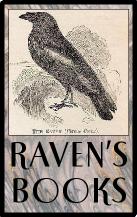|
|

CHINUA ACHEBE
Written by David Carroll, University of Toronto, and published by Twayne Publishers, Inc., New York, copyright 1970. This is a book in Twayne’s World Authors Series. The series intent was “to present a critical-analytical study of the works of the writer; to include biographical and historical material that may be necessary for understanding, appreciation, and critical appraisal of the writer; and to present all material in clear concise English--but not to vitiate the scholarly intent by doing so.”
This is an uncommon book and valuable to scholars of African literature. This book does not include the complete novels or stories of Achebe--only excerpts necessary for understanding the author’s works.

Novels discussed are:
THINGS FALL APART NO LONGER AT EASE ARROW OF GOD A MAN OF THE PEOPLE There is a Selected Bibliography, Notes and References, Chronology, Index, Introduction and Conclusion. This book is NOT ex-lib (library).

From Wikipedia:
Albert Chinualumogu Achebe is a Nigerian novelist, poet, professor, and critic. He is best known for his first novel and magnum opus, Things Fall Apart (1958), which is the most widely read book in modern African literature
Raised by Christian parents in the Igbo town of Ogidi in southeastern Nigeria, Achebe excelled at school and won a scholarship for undergraduate studies. He became fascinated with world religions and traditional African cultures, and began writing stories as a university student. After graduation, he worked for the Nigerian Broadcasting Service and soon moved to the metropolis of Lagos. He gained worldwide attention for Things Fall Apart in the late 1950s; his later novels include No Longer at Ease (1960), Arrow of God (1964), A Man of the People (1966), and Anthills of the Savannah (1987). Achebe writes his novels in English and has defended the use of English, a "language of colonisers", in African literature. In 1975, his lecture An Image of Africa: Racism in Conrad's "Heart of Darkness" became the focus of controversy, for its criticism of Joseph Conrad as "a bloody racist". In 2011, The Guardian of London named An Image of Africa: Racism in Conrad's "Heart of Darkness" one of the 100 greatest non-fiction books ever written.
When the region of Biafra broke away from Nigeria in 1967, Achebe became a devoted supporter of Biafran independence and served as ambassador for the people of the new nation. The war ravaged the populace, and as starvation and violence took its toll, he appealed to the people of Europe and the Americas for aid. When the Nigerian government retook the region in 1970, he involved himself in political parties but soon resigned due to frustration over the corruption and elitism he witnessed. He lived in the United States for several years in the 1970s, and returned to the U.S. in 1990 after a car accident left him partially disabled.
Achebe's novels focus on the traditions of Igbo society, the effect of Christian influences, and the clash of values during and after the colonial era. His style relies heavily on the Igbo oral tradition, and combines straightforward narration with representations of folk stories, proverbs, and oratory. He has also published a number of short stories, children's books, and essay collections. He is currently the David and Marianna Fisher University Professor and Professor of Africana Studies at Brown University in Providence, Rhode Island, United States.

From the dust jacket description:
“Chinua Achebe is one of the most impressive of the African novelists writing at the present time. His novels describe with wit and dignity the traditional way of life of a West African people before the coming of the white man. The reader is invited to take a close and intimate look at this sophisticated, flexible, and changing culture so that he will understand what happens when the Europeans arrive. And this is Achebe’s second major concern. He shows the Europeans pushing into “the heart of darkness” and then dramatizes and diagnoses the meeting of Europe and Africa. This takes place at all levels of society, from the 19th century to the present, and even after the Europeans have gone they leave behind their institutions. These provide a continuing source of conflict for, Achebe implies, traditional loyalties and the more recently imposed duties are irreconcilable. This is what gives the novels a disturbing topicality. Achebe is an Ibo and the recent events in Nigeria have confirmed the worst fears expressed in his last novel. This study, the first extensive discussion of Achebe’s novels, examines the various aspects of this confrontation, and also the techniques by which it is articulated. Europe and Africa meet and interact not only in the darma of events, but also in the manner in which Achebe adapts and modifies the English novel for his own, African purposes.”
8 1/4 x 5 1/2 inches--156 pages

CONDITION: This hard-cover book is in very good condition with a good dustjacket. The red cloth cover is clean and shows little to no wear. The interior is excellent with no names, marks, underlining, notations, tears or odor. The paper is slightly toned with age. The hinges and binding are excellent with no loose or missing pages. The dustjacket is complete and without tears, chipping or creases. It is somewhat faded, especially at the spine. There is also some waterstaining--mostly along the bottom edge and along the folds of the turn-ins or flaps. There is no evidence any of this moisture affected the book itself. This dustjacket will come protected in a new Brodart mylar dustjacket protector.


BECAUSE MEDIA RATE SHIPPING IS FREE ON THE BOOKS I SELL, COMBINE THIS WITH OTHER ITEMS FROM MY EBAY STORE.

I AM AN EXPERIENCED EBAY SELLER (23+ YEARS) AND SHIPPER WITH 100% (always!--since 1997!) FEEDBACK RATING.
ALL ITEMS ARE CAREFULLY AND SECURELY PACKED TO REDUCE OR ELIMINATE DANGER OF CRUSHING AND OR WATER/MOISTURE DAMAGE. ALL BOOKS ARE SHIPPED IN STURDY BOXES WITH TRACKING AND DELIVERY CONFIRMATION INCLUDED.
I PERSONALLY GUARANTEE ALL OF THE BOOKS, AUTOGRAPHS AND SIGNATURES ON BOOKS I SELL.

|
|